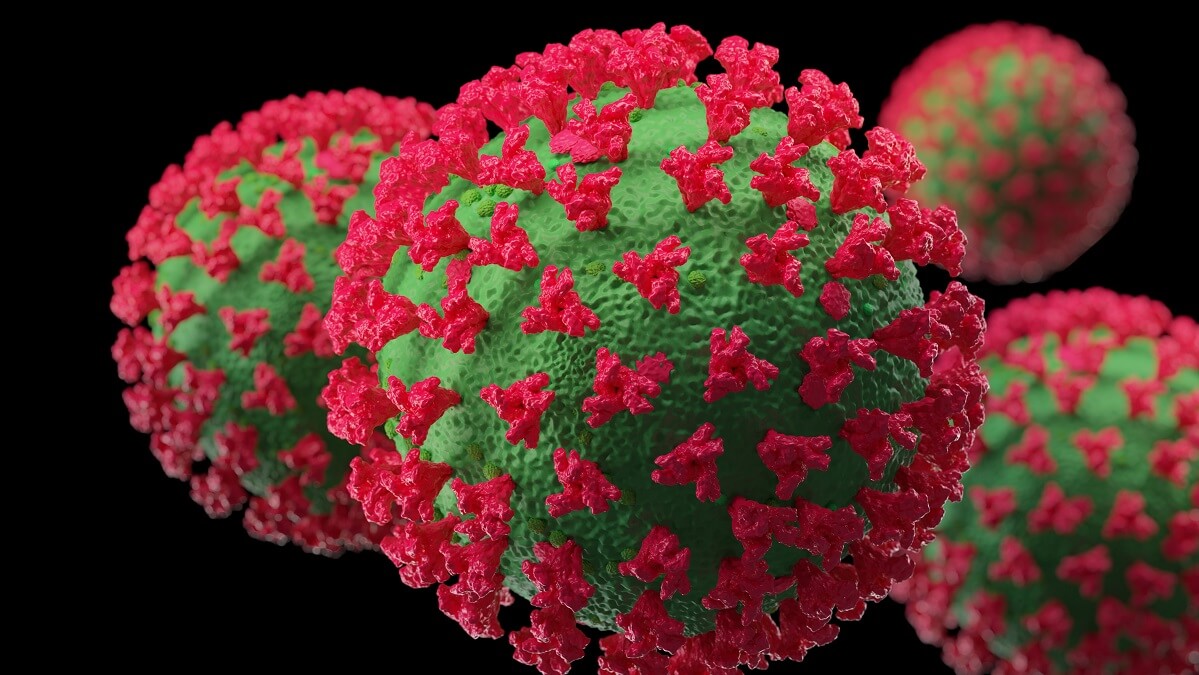The origin of the COVID-19 pandemic has been a subject of intense scrutiny and debate since the virus first emerged, sending shockwaves around the globe. After a comprehensive two-year investigation, US lawmakers have now backed the theory that the virus likely leaked from a Chinese laboratory, a revelation that has reignited discussions about the pandemic’s beginnings and the implications for global health security.
The extensive 520-page report, produced by the Republican-controlled House Select Subcommittee on the Coronavirus Pandemic, delves into the federal and state-level response to the crisis, vaccination efforts, and, most notably, the origins of the virus that has claimed the lives of millions of people worldwide. The investigation’s findings are poised to shape not only the historical understanding of the pandemic but also future preparedness for potential health emergencies.

Panel chairman Brad Wenstrup emphasised the importance of the investigation, stating, ‘This work will help the United States, and the world, predict the next pandemic, prepare for the next pandemic, protect ourselves from the next pandemic, and hopefully prevent the next pandemic.’ Wenstrup’s words underscore the critical need for transparency and integrity in leadership to rebuild public trust and ensure a united response to future health crises.
The report’s conclusions are based on extensive research, including 25 meetings, over 30 transcribed interviews, and a review of more than one million pages of documents. The five ‘strongest arguments’ supporting the lab leak theory, as outlined in the report, include the virus’s unique biological characteristics, evidence of a single introduction into humans, the proximity of Wuhan’s SARS research lab, reports of Wuhan Institute of Virology researchers falling ill with a COVID-like virus in late 2019, and the absence of evidence supporting a natural origin.
The investigation also included two days of closed-door interviews with Dr. Anthony Fauci, the government scientist who became a trusted figure during the early days of the outbreak. Despite facing criticism and threats, Dr. Fauci has consistently denied any cover-up of the virus’s origins. The panel, however, concluded that SARS-CoV-2 ‘likely emerged because of a laboratory or research-related accident.’
Beyond the virus’s origins, the report sheds light on the misuse of taxpayer-funded pandemic relief programs, with staggering amounts lost to fraud. The findings reveal that fraudsters and criminals siphoned off billions of dollars through various relief programs, highlighting the need for better oversight and fraud protection measures.
The response from Beijing to the report was swift and dismissive, with foreign ministry spokesperson Lin Jian stating that the report had ‘no credibility’ and accusing the United States of political manipulation. The panel’s criticism of the World Health Organization (WHO) was equally scathing, accusing the global body of succumbing to pressure from the Chinese Communist Party and prioritising political interests over international duties.
The report also controversially claims that lockdowns ‘did more harm than good,’ mask mandates were ‘ineffective,’ and social distancing guidelines were not scientifically justified. It further criticises the handling of school closures and vaccine mandates, suggesting that these measures were not supported by science and caused more harm than good.
As the world continues to grapple with the pandemic’s aftermath, the report’s findings raise critical questions about the balance between public health measures and individual freedoms, the role of scientific evidence in policy decisions, and the importance of a coordinated and transparent response to health emergencies.
The revelations from this two-year investigation are sure to provoke debate and demand attention from public health officials, policymakers, and citizens alike. As we reflect on the lessons learned from the COVID-19 pandemic, it is imperative that we apply these insights to strengthen our resilience against future threats and ensure that the sacrifices made by millions around the world lead to a safer and more prepared global community.
What are your thoughts on the findings of this investigation? Do you believe the lab leak theory, or do you support another origin for the virus? How do you think this report will impact future pandemic preparedness? Share your views and join the conversation below.
Also read:What pathogen might spark the next pandemic?


What is interesting is the disagreement between this majority report (chiefly US Republicans) and the opinions of most actual virology research scientists (and the minority report-from Democrats!) as to probability of origin of SARS-CoV-2. The main opinion of virus researchers (see https://www.nature.com/articles/d41586-024-03968-0 for a recent summary, 4 Dec 2024) is of course that SARS-CoV-2 arose probably as a so-called zoonotic event involving animal-to-human spread most likely jumping to humans from an epicentre at the Wuhan animal market. Zoonotic origins of human infectious diseases are common and in particular have been accepted for previous viruses closely related to SARS-CoV-2, including the dangerous SARS-CoV-1 of 2002 to 2004, and at least four subsequent closely related beta-corona viruses which caused serious symptoms in a few people but which fizzled out due to their infectivity being even lower than that of SARS-CoV-1 and vastly lower than that of SARS-CoV-2 – hence these are not commonly even known of. It is in the nature of genetic and epidemiological backtracking that complete certainty can seldom be obtained, but there are numerous lines of circumstantial evidence all of which point to a zoonotic and point away from an intentionally lab.-engineered origin. There are enough sticks to beat-up the Peoples Republic of China without resorting to a stick that is most likely imaginary. And if a viral repository in a wild animal population is discovered (as happened for SARS-CoV-1, though it took years, and luck), it then makes this report look like the work of conspiracy-nutters.
‘It is in the nature of genetic and epidemiological backtracking that complete certainty can seldom be obtained…’
Very well said, @newdon. I really appreciate how this gives space for the nuances of biology!
That said, it does lead me to ask what narrative will prevail when Trump returns in January…